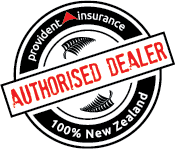How long will it take? What should I bring?
Applications generally don't take more than 25 minutes in person. The process is informative making sure you aware of the options available to you. Once your application is conditionally-approved the finance company will need to verify income, outgoings and expenses prior to collection of your new vehicle.
Generally, the process is a two-step (visit) process.
Step 1 - initial visit – introduction into your available options, you will be given quotes on the options you have considered. conditional-approvals are generally very quick, usually 10-30 Minutes after completion of the finance application. Scotty will require you to provide the information outlined below. Scotty will also discuss with you expected timings for the finance company to complete their assessment on the information you have provided.
Step 2 - Second Visit – This visit you will be confirming the options you have chosen and completing the finance documentation, generally you will also take delivery of your vehicle at the end of your second visit.
Why 2 visits? Between the two visits Scotty works behind the scenes completing the income, outgoing and expenses verification process with the finance companies. This also gives our customers time to consider all options they have been presented.
What you need to bring
Wholesale Cars Direct acts as a professional agent for many finance companies, we by law must abide by the responsible lending code.
To make sure we can provide the efficient service our customers appreciate, it is imperative that you bring or send us the following information for you to be able to take delivery of your new vehicle in a time frame that you require. So please remember to bring with you, or email to Scott;
- Drivers licence
- Proof of Income, outgoings and expenses. (Your last 3 Months Bank statements of all accounts you hold including credit cards, savings, Joint accounts)
- Bank account number
- Proof of address (Recent power bill, rates bill, recent bank account statement, tenancy agreement, car registration notification).
Please note the above can’t be older than 3 months and requires your first and surname/s to be present.
New to NZ?
Building a credit history in New Zealand can be beneficial for future borrowings, we can advise and help you to get this credit history started.
We understand every situation is different, and recommend coming into the dealership or phoning Scotty to simplify the process for you on 0800 22 44 02 ext. 2
Apply Now



